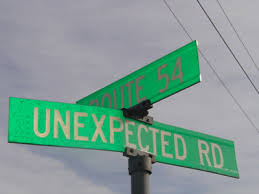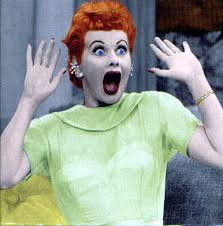
I just went back over college essays my clients wrote over the last several years.
Despite the classic list of what not to write about (see previous post), I would say many wrote about mission trips, volunteering activities and sporting experiences anyway.
Some pulled it off, however, because they focused in on specific incidents and what they learned from those.
Others, however, were pretty flat.
My favorite essays, I noticed, almost always involved something unexpected, whether it was something that happened to the writer or how they reacted and learned from it.
They also included anecdotal leads. For example, here are two topics that resulted in strong essays:
1. One student wrote about how things always went his way, and how he was always top of his class, the star athlete and picked for leading roles in the drama program.
His essay told the story of how he expected to get the star role in his senior play, and was stunned to learn he got a lesser role. (this was the “unexpected”)
In his essay, he developed what he learned from that experience.
In a natural way he was able to highlight his talents, yet come across as humble and likable at the same time.
(He also started his essay with a simple anecdote of the moment a friend shouted out to him that he did not make the lead role. This short, narrative introduction included dialogue and captured with high emotion his huge disappointment. A perfect “grabber” intro!)
2. Another student wrote about how she injured her ankle playing soccer on the varsity team, and was out for the entire season, yet learned more sitting on the bench that season than she would have playing. (also, the “unexpected”)
Her essay focused on how she discovered a new perspective on her team and the game by simply watching.
Again, she showcased her talents, but showed how she was able to turn something negative into a positive.
(she also started her essay with a short narrative anecdote—with strong imagery on the setting, dialogue, etc—focusing on the moment she was injured, which added emotion and drama to his essay.)
What these effective essays had in common:
- They both included something unexpected and how the writer learned something from the experience.
- They both focused on one incident and expanded that into larger lessons learned.
- They both pulled the most intense moment to describe in their introductions, which made their essays full of lively writing (vivid details, descriptive language, colorful dialogue, etc.) highly readable.
What is unexpected about you?








Thanks for the guidance.